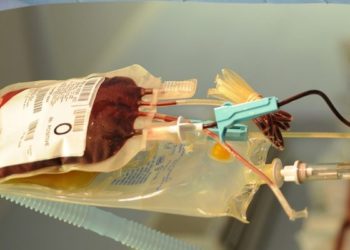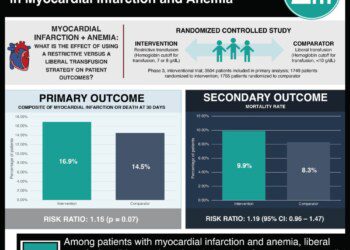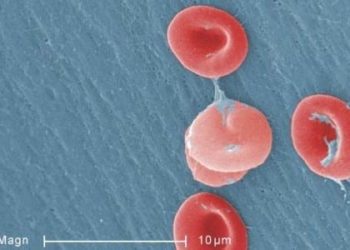Sutimlimab improved hemoglobin and patient symptoms in cold agglutinin disease
1. Sutimlimab was shown to stop hemolysis, improve hemoglobin levels, and reduce patient fatigue in patients with cold agglutinin disease.
2, Infections and gastrointestinal adverse events were determined to be related to sutimlimab treatment.
Evidence Rating Level: 2 (Good)
Study Rundown: Cold agglutinin disease is caused by autoantibodies binding to the I antigen on erythrocytes when temperatures are less than or equal to 37 °C, which activates the complement pathway causing agglutination. Currently, no approved therapies exist for cold agglutinin disease. Sutimlimab is a monoclonal antibody that targets C1s, which activates the complement pathway. This study assessed the efficacy and safety of sutimlimab in patients with cold agglutinin disease. Patients treated with sutimlimab had a rapid response in halting hemolysis, markedly increased hemoglobin levels, and improved fatigue levels. Mild-to-moderate adverse events, most commonly infections and gastrointestinal disorders, were also noted in patients treated with sutimlimab. Limitations of this study include a lack of a control treatment arm, a small sample size, and a lack of long-term follow-up data. Nonetheless, this study’s results are significant in showing that targeting the classic complement pathway represents a novel approach for treating cold agglutinin disease.
Click to read the study in NEJM
Relevant Reading: TNT003, an inhibitor of the serine protease C1s, prevents complement activation induced by cold agglutinins
In-Depth [prospective cohort]: This study enrolled 24 patients at 16 sites across eight countries. Patients 18 years or older who had confirmed cold agglutinin disease, a recent red-cell infusion, hemoglobin levels 10g/dL or lower, and a total bilirubin level above normal range at screening were included in the study. Patients with cold agglutinin syndrome or a diagnosis of another autoimmune disorder with antinuclear antibodies were excluded from the study. The primary efficacy endpoint was a composite of normalization of hemoglobin levels to 12 g/dL or greater, or an increase by 2 g/dL from baseline. Overall, 13 of 24 patients (54%; 95% confidence interval [CI], 33 to 74) met the criteria for the composite primary endpoint. Activity in the classic complement pathway was almost completely inhibited within one week after the initiation of sutimlimab treatment. Patient-reported fatigue was reduced during sutimlimab treatment, as assessed by the Functional Assessment of Chronic Illness Therapy (FACIT) Fatigue Scale (mean score at baseline, 32.5; mean score at time of treatment assessment, 44.3 [higher score indicated less fatigue]). Additionally, 124 adverse events occurred in 22 out of 24 patients (92%). The type and frequency of the most common adverse events were infections and infestations (54%), gastrointestinal disorders (33%), and administration-site conditions (29%). Altogether the results of this study show that in patients with cold agglutinin disease, sutimlimab treatment was associated with halted hemolysis, improved hemoglobin levels, and improved patient quality of life.
Image: PD
©2021 2 Minute Medicine, Inc. All rights reserved. No works may be reproduced without expressed written consent from 2 Minute Medicine, Inc. Inquire about licensing here. No article should be construed as medical advice and is not intended as such by the authors or by 2 Minute Medicine, Inc.







